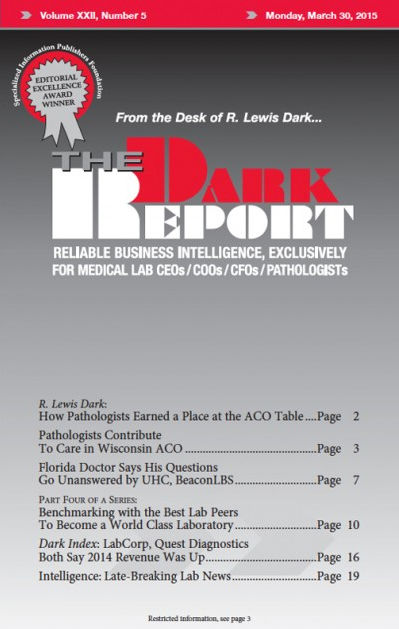CEO SUMMARY: One common complaint about the efforts of UnitedHealthcare to introduce its unpopular laboratory benefit management program in Florida is that the insurer-and its agent, BeaconLBS, a division of Laboratory Corporation of America-don’t respond to physicians when they request guidance. One family practice physician in Jacksonville said that UHC has not even acknowledged several letters he sent via certified mail, return receipt requested.
To access this post, you must purchase The Dark Report.


